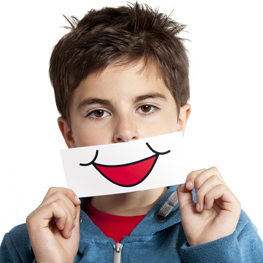
Special events are the stuff of happy memories for most of us, but for children with autism, the departure from routine and avalanche of social expectations in an unfamiliar setting full of strangers can spell potential calamity. ‘No surprises!’ is a tactic worth the preparation and planning effort.
These tips will help see your child with special needs through that special event:
1. Be honest about whether your child is ready to attend such an event or party. If your child truly can’t keep all four legs of their chair on the floor, gets easily overloaded in a room full of people and noise, still thinks a fork is for combing hair, and eats applesauce with their fingers, it may be kinder to all involved to call in the sitter.
2. Be realistic about clothing. An hour before the event is a bad time to find out that your child’s pants ride up their bottom when they sit, the collar bothers their throat, the fancy socks are too tight, the shirt cuffs are too short, the fasteners irritating, and the new-clothes smell upsetting. Plan ahead.
3. Visit the venue beforehand - the restaurant, house of worship, unfamiliar home of friend or family - to give your child a visual image.
4. Explain what will happen at the event. What is your child expected to do? Sit quietly during the service or performance, sit separately from you, get food from a buffet, participate in an activity?
5. If possible, arrange event seating where they will be able to see the event. It’s unrealistic to expect your child to sit quietly while voices they may or may not understand drone on somewhere beyond their immediate view, which is the back of someone’s head. However, if you think your child may not make it through the entire thing, sit where they can be taken
out unobtrusively.
6. Preview the menu. If it’s not appropriate for your child, ask the hotel or restaurant or party centre, for example, for a special meal. Most places are glad to do it. If special arrangements aren’t possible, bring something to eat for your child, or feed them beforehand so they are not sitting around ravenously watching everyone else eat. When you’ve done what you can, try not to sweat it further. Holidays and events are so exciting for children that many don’t eat much anyway.
7. Teach them a simple introduction. If your child can tolerate, a handshake. If not, let them know it’s perfectly okay because you can…
8. Let them know there will be lots of people there, but they don’t have to hug or kiss anyone if they don’t want to, especially strangers. Then stay close to support your child. For example, “Josh prefers not to hug,” delivered in a pleasant, unapologetic tone of voice is acceptable for anyone, autism or no. If you fear that this stance will offend affectionate Aunt Edith, please let that be her problem, not your or your child’s. Today’s children are growing up in an age where they are taught to resist unwanted touch from strangers. Your child is too young to interpret the mixed message that some unwanted touches from strangers are okay and some are not. Besides, there are too many of us out there whose overriding memories of childhood special events include being smothered by well-meaning, cologne-marinated relatives, male and female. Aunt Edith or Uncle Joe don’t really want to be remembered in that manner anyway, so declining that hug is a kindness to them as well as to your child.
9. Give appropriate 15-, 10- and 5-minute warnings, and then leave while they’re still having fun and the memories will be good. In other words, before the too-much-party meltdown.
10. Having your child tell the host, “Thank you for inviting me”before leaving helps put a nice closure on the event or party.
11. And finally, never forget that many concrete-thinking children with autism will call it just the way they see it - or the way they hear it from you. Refrain from wondering aloud in the car on the way to the party if Uncle Joe (or Cousin Betsy) will over-imbibe as usual, unless you want to hear your check in later with, “I want to sit with Uncle Joe so I can see if he really does drink like a fish!”
Ellen is author of one of the autism community’s most beloved book, Ten Things Every Child with Autism Wishes You Knew and three other award-winning books on autism. Her work has informed, inspired, and delighted millions in more than 20 languages. She is a long-time columnist for Autism Asperger’s Digest, and a contributor to numerous publications, websites, and conferences worldwide. Adapted from 1001 Great Ideas for Teaching and Raising Children with Autism or Asperger’s (with co-author Veronica Zysk).
Calgary’s Child Magazine © 2024 Calgary’s Child